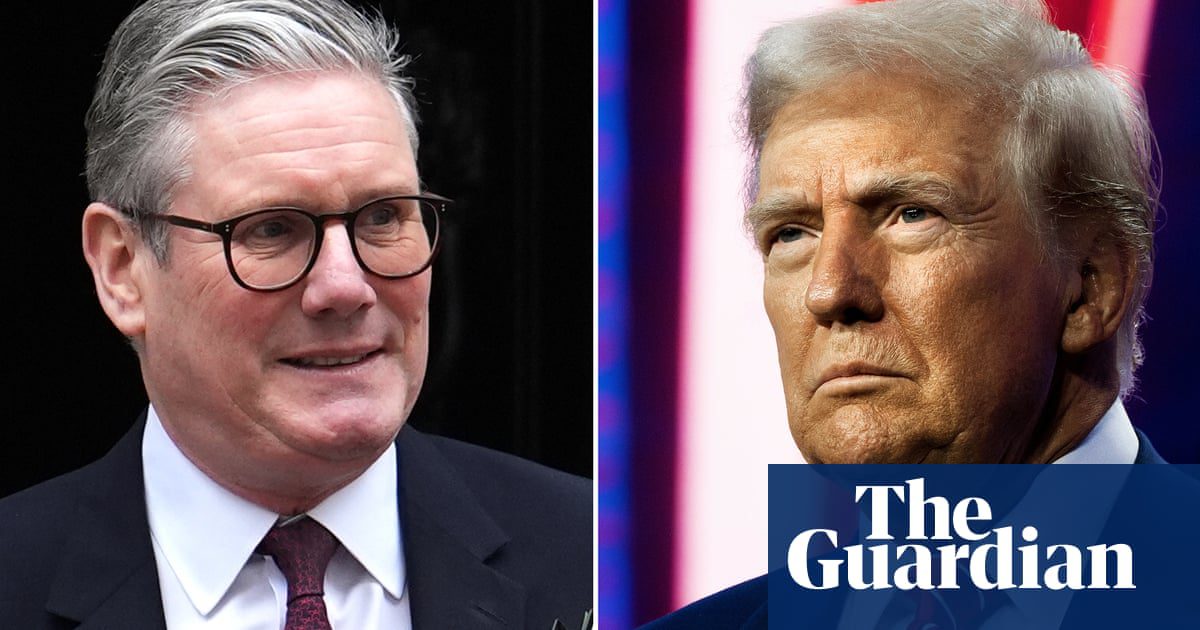
On Wednesday, Keir Starmer is set to embark on a quick visit to Washington, drawing significant attention not only from the UK but also from several European capitals, especially Kyiv. As he prepares for his discussions with Donald Trump on Thursday, key questions remain: what are Starmer’s goals, and how can he engage the US president effectively? These are the central points to consider.
Discussions on Ukraine’s Peace
Starmer’s arrival in the United States coincides with a precarious political climate across Europe, reminiscent of the upheavals following the fall of the Berlin Wall. Trump’s second term commenced with a pledge to end the hostilities stemming from Russia’s invasion of Ukraine three years prior. It appears he is attempting to navigate this situation by largely prioritizing Moscow’s viewpoints.
European leaders are increasingly unsettled by Trump’s inclination to converse with Vladimir Putin rather than Volodymyr Zelenskyy, as well as his reluctance to acknowledge Russia’s role as the aggressor. Starmer’s primary challenge will be to convince Trump that a fair and lasting peace is in his best interest, which cannot be achieved through coercive arrangements imposed on Ukraine.
Strengthening the North Atlantic Alliance
This month has also seen a jarring development for European nations, with Pete Hegseth, Trump’s controversial pick for defense secretary, announcing at the Munich Security Conference that the US is no longer “primarily focused” on European security. This signals a troubling shift that suggests the end of a longstanding commitment within NATO.
Preliminary reports indicated that the US might not continue to be “the primary guarantor of security in Europe.” Regardless of the exact phrasing, the implication was clear: Europe may increasingly find itself responsible for its own defense against potential threats from Russia and elsewhere.
Starmer will aim to clarify what this shift entails, provided there’s a coherent strategy in Washington, and will strive to emphasize to Trump why abandoning Europe could have negative repercussions for the US in the long run.
Broader Defense Considerations
Trump has long voiced concerns, which resonate with many European leaders, regarding the disproportionate share of NATO’s responsibilities that the US bears, allocating around 3.3% of its substantial GDP on defense. The UK, meanwhile, contributes approximately 2.3%, soon expected to rise to 2.5%, placing it among the higher contributors within European NATO states.
As a leader, Trump often reacts strongly to perceived inequities, especially the notion that the US is being taken advantage of. Starmer hopes to convey that Europe is acknowledging the emergence of a new era and is prepared to enhance its contributions. In return, he is likely to seek renewed US assurances regarding defense and security, particularly concerning a potential American support role for peacekeeping forces in Ukraine.
Trade Relations and Tariffs
One of the critical objectives for Starmer and his aides is to leverage the seemingly favorable rapport between the UK Prime Minister and the US President to ensure that the UK is spared from future waves of tariffs, especially those directed at Europe.
While this may not represent the most dignified diplomatic undertaking—Ed Davey, leader of the Liberal Democrats, aptly described it as an attempt to avoid the attention of a “playground bully”—Starmer is acutely aware that imposing tariffs on UK exports, alongside a broader trade conflict, could jeopardize their primary goal of economic growth.
Negotiating a more formal trade agreement post-Brexit would further shield the UK, yet given Trump’s aggressive negotiating tactics and the commitments made by Starmer’s administration to uphold food safety standards for American imports, this seems a distant prospect.
Navigating Relations with the President
This aspect is perhaps the most crucial of all. Historically, British prime ministers could arrive in Washington with a clear understanding of the administration’s stance. However, during Trump’s second term, the usual protocols are more unpredictable.
Interestingly, Starmer spoke with Emmanuel Macron prior to his trip, following the French president’s recent visit to Washington. Macron’s strategy entailed complimenting and occasionally persuading his unpredictable counterpart.
While Starmer may exhibit a more reserved approach than Macron, he will likely employ a mix of commendation and hints of proposals that align with Trump’s interests, including the allure of a grand, ceremonial state visit to the UK.









